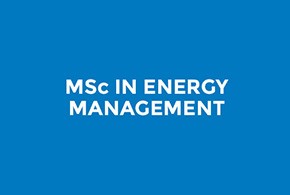| |
| |
|
Editorial
We're delighted to announce that on 21st June, the MSc in Energy Management students will visit one of France's largest refining and petrochemical sites. More details will be announced soon. Stay tuned!
Upcoming Event:
ESCP MEM Alumnight: Taking place on 11th June, the event will bring together ESCP MEM Alumni working in the energy, environment, and transport sectors. More details can be found here.
Research:
Our latest working paper on Compliance and Voluntary Carbon Markets, and their potential to reshape the energy landscape by Omkar Kajrolkar and Raghav Sharma is now available online. To read more, click here.
Energy Programmes at ESCP:
Admission process for the 2024 intake of our MSc in Energy Management (MEM) is open. To find out more about the specialisation, please click here.
Applications for our Executive Master in Future Energy is open for the February 2025 intake. For more information on the programme, please click here.
Finally, to keep up-to-date on all activities at the Centre, we invite you to join our LinkedIn group, Energy Management @ ESCP Business School.
|
| |
|
| |
|
Research
|
EMC Working Papers
Driving the Paris Agreement
Article 6 of the Paris Agreement includes provisions allowing countries to cooperate to achieve National Determined Contributions (NDCs), specifically through carbon pricing, to meet mitigation commitments. Carbon markets are an emerging tool that incentivises businesses to pollute less and invest in clean technologies by putting a price on carbon emissions. As this article explores further, compliance and voluntary carbon markets are poised to reshape the energy landscape and contribute to achieving the ambitious goals of the Paris Agreement.
Compliance Carbon Markets
Compliance carbon markets are a key tool in the fight against climate change, and they aim to establish a carbon price by laws or regulations which control the supply of allowances distributed by national, regional and global regimes through the following compliance mechanisms: (1) Cap and Trade: Sets a pollution limit (the cap) and lets companies buy or sell allowances to meet their obligations, creating a market for carbon credits with a price driven by supply and demand; (2) Carbon Tax: A fixed price is set per ton of carbon emitted. Companies must pay tax for their emissions, incentivising them to reduce pollution.
|
|
Published Papers
Green roofs are artificial ecosystems that provide a nature-based solution to environmental challenges such as climate change and the urban heat island. Green roofs aid in the conservation of both cooling and heating energy; deposition of particulates and mitigation of air pollution; control of runoff and water pollution; promotion of biodiversity; and provision of aesthetic and health benefits. This research is a holistic review of the green roof literature and provides a global perspective of the subject with a classification of modelling studies; and an extensive review of contributions to energy conservation, carbon sequestration, mitigation of air pollutants, runoff control; and urban noise reduction. The review covers the system’s thermal performance modelling through several methodologies; experimental studies; parametric studies to assess the impact of various parameters on the system’s energy efficiency using several configuration parameters such as leaf area, foliage height and density, plant coverage, roof insulation, soil thickness, and irrigation; energy benefits; and environmental benefits including air pollutants mitigation, carbon sequestration, runoff control and urban noise reduction. Finally, review was complemented with a life cycle assessment study of green roofs, which examined the extraction of raw materials, manufacturing and construction, transportation, and disposal.
|
Giouli Mihalakakou, Manolis Souliotis, Maria Papadaki, Penelope Menounou, Panayotis Dimopoulos, Dionysia Kolokotsa, John A. Paravantis, Aris Tsangrassoulis, Giorgos Panaras, Evangelos Giannakopoulos, Spiros Papaefthimiou
|
READ MORE
|
|
|
|
| |
|



















